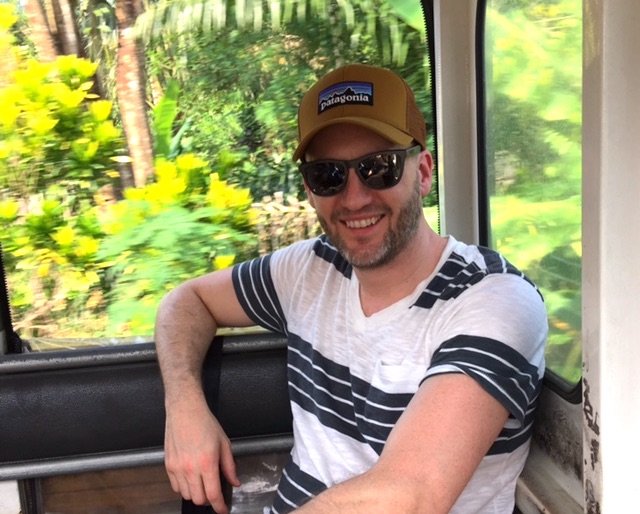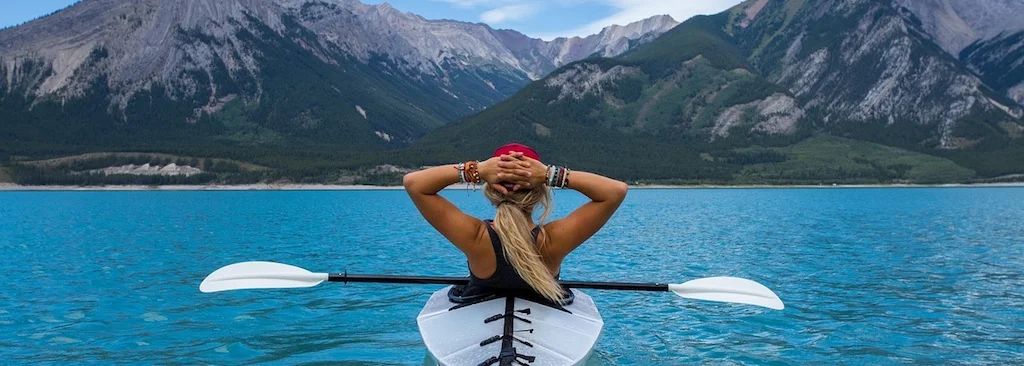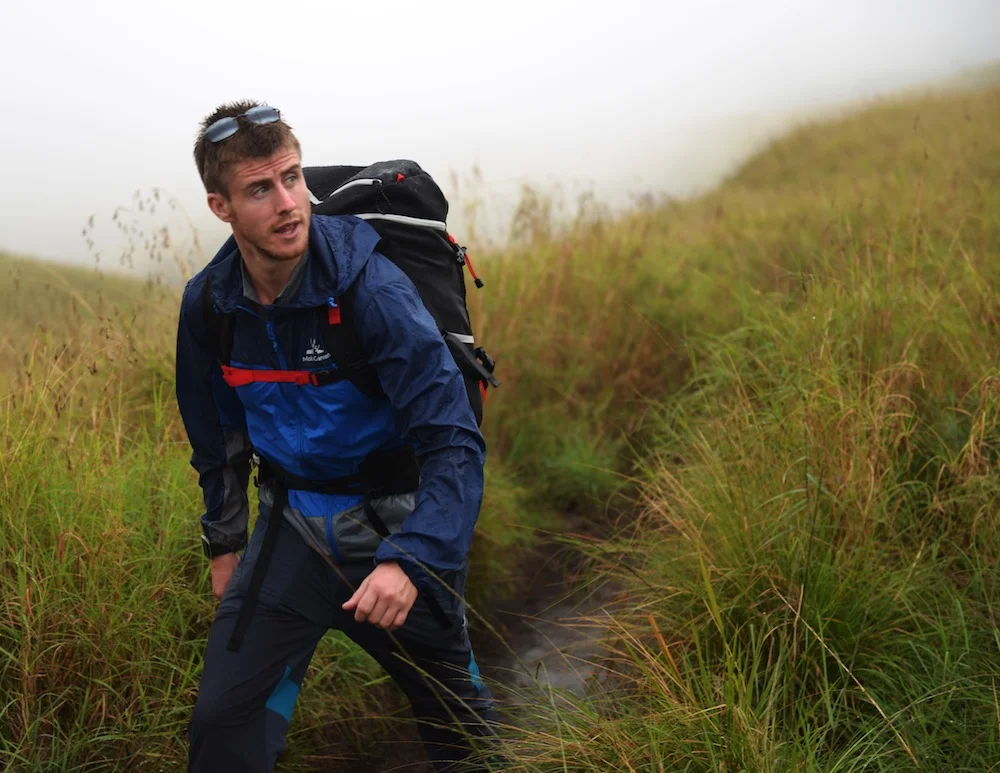Approximate reading time: 8 minutes.
Is it fear rather than finances that prevents us from fulfilling our ambitions and experiencing a more adventurous life? In two articles I share my thoughts and those of some seasoned adventurers as well as some key Lessons to take away.
After my last blog post in which I outlined my plans for adventure in 2017 someone mentioned to me that it was "easy for me” to plan the adventures I spoke about in 2017, free of financial constraints.
Sadly I am not free from such constraints and whilst I am in a position to take one year to “restructure” my life after quitting the rat race, without defaulting on my mortgage I will not be able to, and nor would I want to, simply not work. What that work is and how I manage it is another matter!
Anyway, it reminded me that when I was in my late teens or early 20s, free of mortgages or family, I failed to travel as adventurously as I would have liked because I perceived the barrier preventing me from doing so as a financial one, when in truth it was a mixture of fear, and my own immaturity, which stopped me from fulfilling the kind of dreams of travel and adventure many young men and women harbour.
When Laurie Lee "walked out one midsummer morning" he didn't have any money.
I am not talking about climbing Everest. You don't need to be a some kind of sponsored superhero athlete to go to somewhere and walk up a few mountains, cycle from border to border or just step slightly off the beaten track and have that indefinable thing called an “adventure”. When Laurie Lee walked out one midsummer morning he didn't have any money but he probably did have the right mindset.
It is my hope that, through this web site, I can help and inspire some people to think differently and find a tangible alternative and more adventurous lifestyle which can fit within a working life. This week I spoke to a few modern day adventurers, writers and adventure travel enthusiasts on funding their passion and how to go some way to "stop imagining and start living".
Here is the first of two articles in which I have gathered the thoughts of some very different people; Ash Dykes, Alex Roddie, Gilad Nachmani and Daniel Smith ("my friend Dan" from a previous post). What they have in common is that none of them belongs to some elite genre of explorer, each has simply acted upon their ambitions. In this first part Ash Dykes and Gilad Nachmani give diverse views on the financial aspects of adventure travel from the perspective of the independent adventurer and the family man.
Image © Ash Dykes
Ash Dykes - @AShDYKES
In 2014 Ash became the first person to walk across Mongolia solo & unsupported. In 2016 he became the first person ever to traverse the length of Madagascar.
AM: When you first thought about going on a long adventure to what extent did the financing of it have any impact?
AD: I would say I am going to try to find a way to do this. The first away from home adventure was Vietnam. But even before that there was nobody there to hand over the money. I had to put in the hard work, working about 240 hours per month for almost 2 years as a lifeguard, I sold my car, bought a bike, cycled through the winter, through the summer everyday to save up the funds to make these travels happen in the first place. Then of course I was doing really cheap adventures to make the money go as far as possible.
When I first thought of the idea of walking solo across Mongolia I was working as a Scuba instructor in Thailand. Its a cheap country, as an instructor you don’t get paid much and I had just a couple of hundred in my bank account and thats it. But I was missing adventure, I loved the diving but it started to get quite repetitive and I wanted to take on something really big, but I wasn’t in any way shape or form ready to take on this Mongolian adventure, financially.
But I ignored that fact, I have always tried not to allow the money factor to restrict me from doing the things that I want to do. We cycled across Vietnam on £10 (approx. $12) bicycles, living off £2 (approx. $2.50) a day. It is still possible to make these kind of adventures happen.
AM: Did you go into this lifestyle with the intention of making a living so were your adventures an investment or was it just something you wanted to do?
AD: It was just something I wanted to do. I think I had an inclination from a young age, even before Vietnam. I enjoyed pushing myself physically and mentally and coupling that with travelling brought that sense of freedom and adventure which translated itself into these expeditions. I certainly never saw it in the early adventures as an investment, in terms of turning it a career. I saw it as a life skills investment, providing me with knowledge and experience, but it was just because I loved it.
AM: Do you think people have a narrow view of how attainable adventure travel is?
AD: Yes, if it goes up in the news people may assume that the adventure is bankrolled or the person does not have any bills to pay or maybe doesn’t pay taxes because they don’t realise just how cheaply some things can be done. For example, the Mongolia walk, which was a world first and a large undertaking; a lot of people assumed it would cost a hundred thousand. The trip itself was 78 days, 1500 miles, pulling a trailer across the Altai mountains, crossing the Gobi desert, completely solo and unsupported. Planning it was about 8 months, during most of which I was in Thailand working as a diving instructor. Towards the end I sold all my dive kit, moved back home with my parents and that is when I tried to search also for sponsorship. And I was lucky to find a sponsor who helped to make it happen but it was a really cheap expedition. All in all it cost under £7,000 ($8,500) and would have happened even without the sponsorship.
AM: What advice would you give to someone who wants to embark on some more adventurous travel but who does not believe they have the means to do so?
AD: Go for it. You can think about it all you like, you can put it off all you like but if you think its something you might regret in the future then just go for it. Act upon it. Take that first step. If you fail, at least you have the satisfaction of having tried. But it comes down to wanting it.
AM: Could this reluctance also be because people have a narrow view of what constitutes adventure travel?
AD: Yeah, I think people get confused by what counts as an adventure. I didn’t start with "world firsts”. You can work up to anything you want and small adventures can take a day, three days, a week, whatever it may be. I spent a little less than a week with a Burmese hill tribe, 7 days cycling the length of Great Britain - probably only spent £300 or £400 ($350 - 500) on that trip altogether. So yes, definitely, start small and build up if you want - adventure comes in all shapes and sizes.
Low budget of course in itself can be bit more hardcore. You don't need the top of the range Gore-Tex gear to walk the length of Wales in winter, given what they used to do a hundred years ago. Thats what I love about the Vietnam trip. The bikes broke so many times, pedals snapped off, we didn’t have a pump or a puncture repair kit and of course it was a huge adventure for us. With all the top end gear, it might not have even been as much of an adventure.
You can follow Ash on twitter @AshDykes or find out more on his web site: ashdykes.com
Gilad Nachmani - @OutdoorsFather
Gilad, through his site; the Outdoors Father, describes his mission as “facilitating the Great Solo adventure” through articles designed to help the busy parent overcome the challenges in getting outdoors.
AM: To what extent do financial considerations or limitations affect your choice of adventure? In other words would you choose an interesting challenge and then find a way to finance it at all costs (so to speak)?
GN: I am quite a frugal backpacker. I invest a lot in my gear and take it from there. I will go for a long weekend, but besides travel I will spend nothing. That includes when hiking with my family, most of the time it will be at very little expense. We will have food with us and when we take kids with us we may splash out on a camp site for the convenience of having toilets. When its just me I very rarely spend anything besides the travel and having food with me, but that's because I have done most of the investing on gear to make sure I that am comfortable.
AM: Would you then do things more locally to live the more frugal outdoor lifestyle?
GN: I still don't own a car despite living in the US now. My wife does but I still cycle everywhere. I find it less limiting, I can spend more on the things I do want, like better gear. Also instead of planning for one trip that will cost a fortune I will do lots of trips that will cost very little.
Also my big trips, they tend to be ones which will cost relatively little so I tend to not plan any expense beyond travel.
AM: How do you balance your need for a more adventurous holiday with your family's requirements? Do you you mix more adventurous travel into a family holiday?
GN: We do tend to mix. Last time we had a proper family holiday was up in the Lake District a couple of years back. We spent 4 days doing local hikes, staying in a flat we rented and then my wife and my daughter took the train back to London and I stayed for another 3 nights camping by myself.
AM: Have you changed what you do since having a family?
GN: Before I met my wife I was a hobo for two years - travelling everywhere, walked most of the Andes for about 7 months, lived in Australia for a year, so really I was living the adventure travel rather than going to find it.
Then I realised I need to adjust so everything became more compact. I will squeeze in a 4 day backpacking trip into a day and a half, mixing ultra running, getting in as many peaks as I can. So I try to enjoy the same amount of experience in a shorter time.
But this is not a financial issue as such and has never been one in terms of how we view it as a family. Most of the time I do the calculations even before it becomes a family conversation. Flying to France to spend 5 days in the Alps would be great but if it weren't doable then I would go to the Lake District for 5 days and enjoy it just as much. So it never reaches a point where it is a financial conversation. It has never been an issue that has limited my travels.
AM: Do you think people have an excessively narrow view of what adventure travel is, or of how they might achieve it?
GN: I think they do because the big article you find in any publication is about the big trips, because they are impressive, they sell better. Its easier to see that kind of dream than saying “listen just hop on a train and go up to the Lake District for two nights”. But do such a thing in January when it’s snowing and you’ll get an amazing adventure that you might need to pay a lot more for in the Alps. But it doesn't sell as well compared doing the Haute Route in Switzerland. Going Ski-touring in the Cairngorms is amazing and falls under adventure travel for anyone who doesn't live in the Cairngorms. But it's not perceived as being as exciting as doing so in Canada.
AM: What advice would you give to someone who wants to embark on some more adventurous travel but who does not believe he or she has the means to do so?
GN: I think it's more about thinking what adventure travel is. It’s about realising that it can be something in your backyard - which will automatically make it cheaper - and you can go and do something, on the face of it, very simple. For instance walking the South Downs. Take that and do that in March when everything is one big mud pool and if that's not an adventure I don't know what it is! You want to make it even more interesting? Do that with a bicycle. You end up carrying it half the time. It’s exactly the same thing you would do cycling across Nepal. So, its less about making it on a shoe-string its more about re-defining what adventure is.
AM: Can you perhaps give one or two examples of cheaper / low tech adventures you have been on or might suggest?
GN: I would simply say pick a long trail and do it in a less flash way. It could be as little as not using guest houses, using basic hostels and that for the individual might feel more adventurous because you are sharing the space with other people. Or do something you have done that was not so exciting and do it in more extreme conditions. Mix in some snow, mud… anything like that always takes the adventure aspect up a couple of notches.
Before I came to the US I did so much in the UK but I still feel I haven’t scratched the surface. I go back to what I mentioned before; ski-touring in the Cairngorms. You can do 2 days of it and it's only 5 hours by train from London.
You can follow Gilad on Twitter @OutdoorsFather or find out more on his web site: outdoorsfather.com
Part 2
Next week I will publish part 2 of this article including interviews with Alex Roddie and Daniel Smith, as well as a few key lessons or tips to inspire us all.

LATEST BLOG POSTS
I quit the rat-race to live a more adventurous life. This is my journey.



